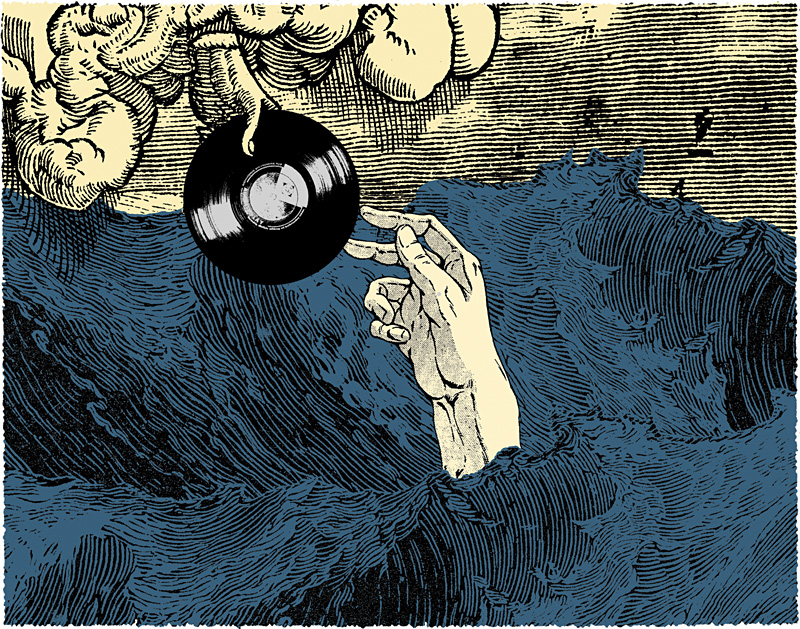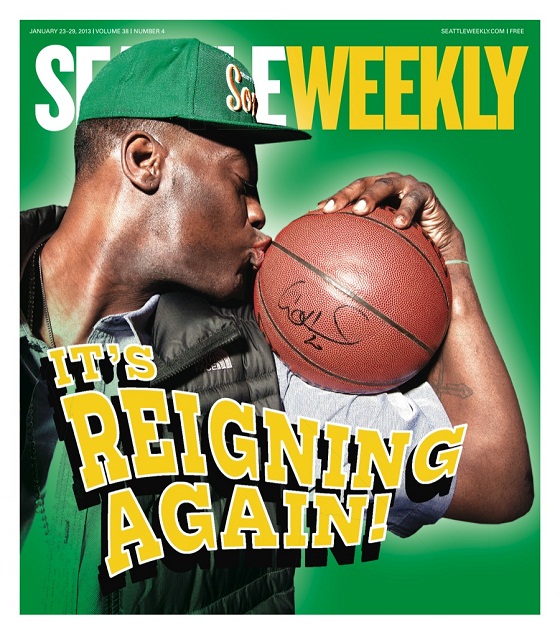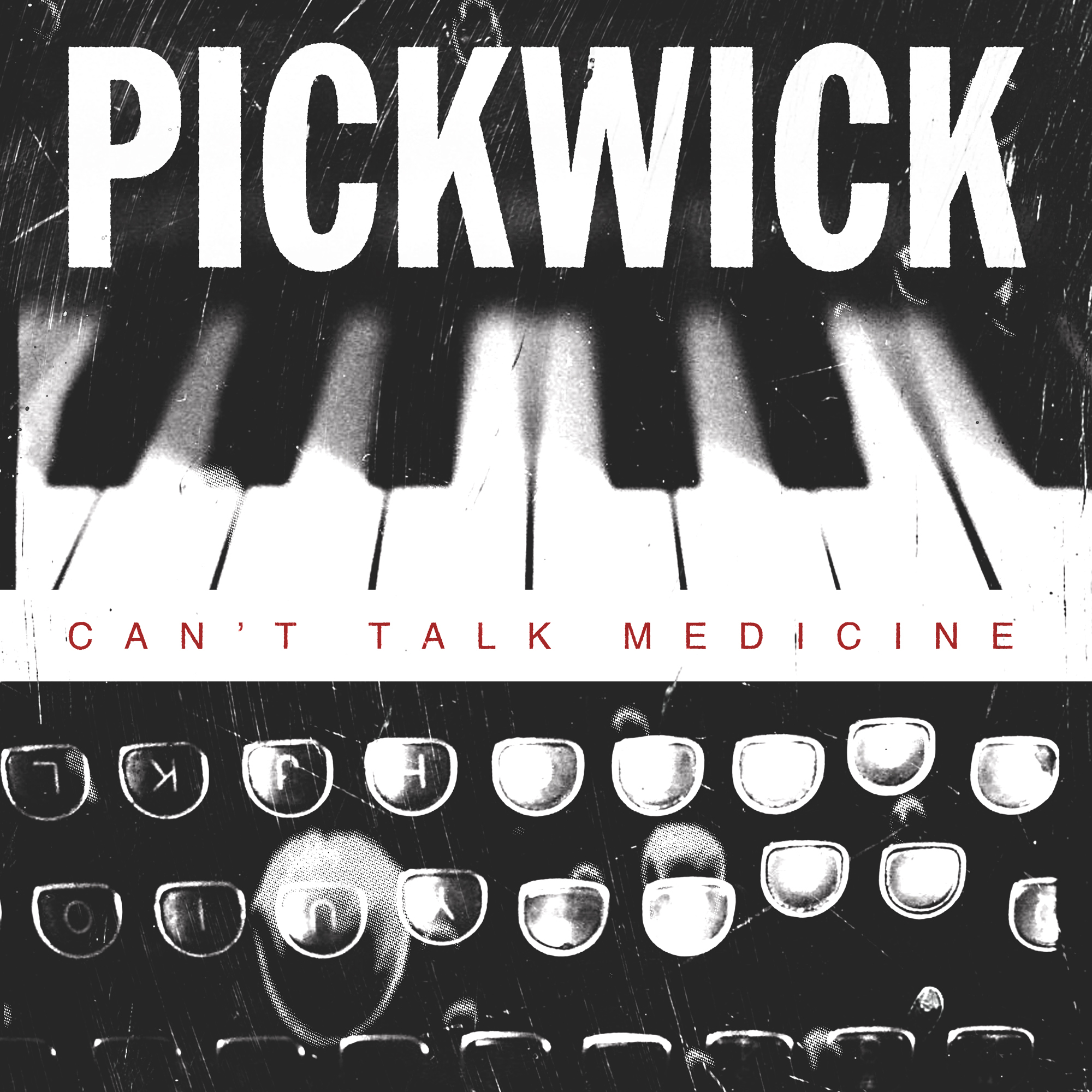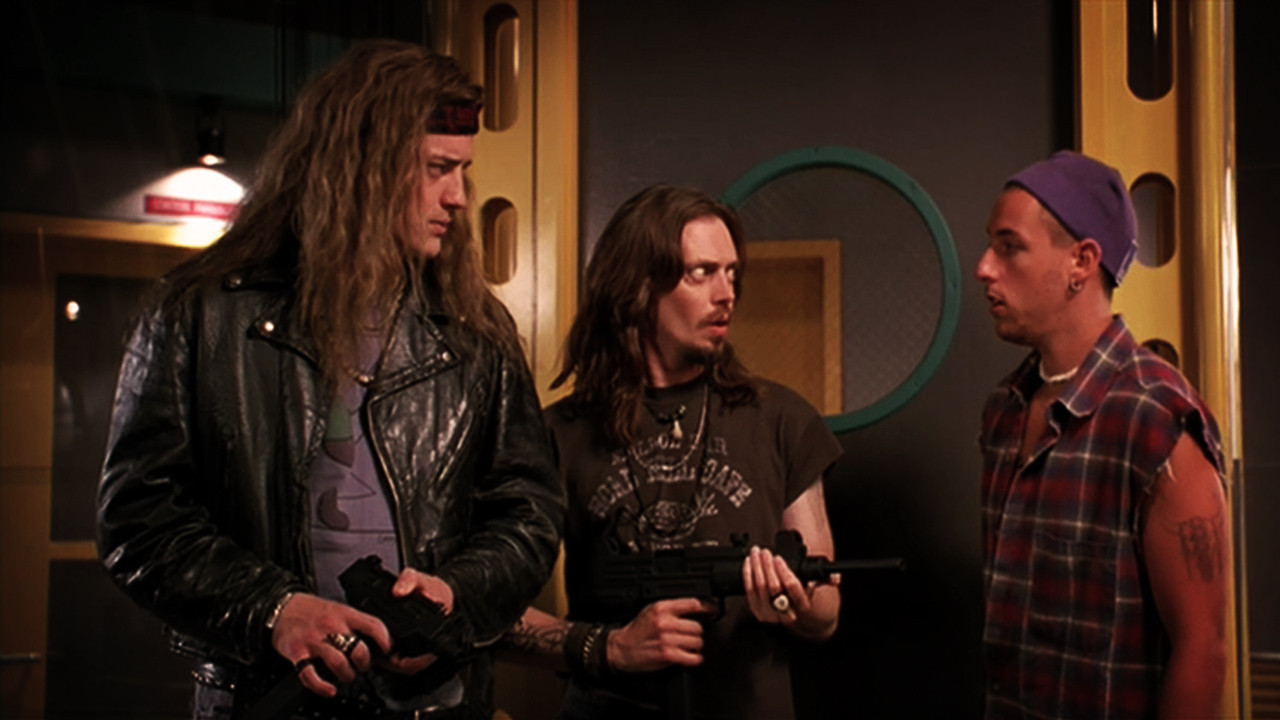Sitting in the conference room in Barsuk Records’ “palatial offices” in upper Queen Anne, label co-founder Josh Rosenfeld is flanked by a pair of gold records awarded for stratospheric Death Cab for Cutie album sales. Over his left shoulder hangs the award for Transatlanticism, the last album DCFC made for Barsuk. Over his right is the award for Plans, the first they made for Atlantic Records.
That a gold record for the latter label hangs on the wall of the band’s former indie home is the result of some clever lawyering on Barsuk’s part during Atlantic’s 2004 buyout of the band’s contract. Under the terms of the deal, Barsuk puts DCFC on vinyl as long as the band’s with Atlantic.
Considering how much vinyl’s resurgence has been championed as a life raft for the music industry, one might think Rosenfeld would consider this a coup. Yet he doubts that Atlantic regrets relinquishing the vinyl rights. “I do get a little bit of a sense from the excitement about vinyl that there are people out there who think that vinyl is gonna, like, save the recorded-music business or something,” he says. “And I really don’t think that’s the case.”
It’s not difficult to see why. According to Nielsen SoundScan, Plans has sold 1.1 million copies [in any medium] in the U.S., only 7,000 of which have been vinyl. In fact, of the 374 million or so albums sold across the country last year, just 2.5 million—not even 1 percent—were vinyl. The top vinyl sellers for 2009 topped out with the Beatles’ Abbey Road at 34,800, and included Fleet Foxes’ self-titled debut with 12,700, roughly 8 percent of the album’s total haul last year, according to Nielsen SoundScan. These are strong, hopeful numbers for labels that need every extra sale they can get, but not enough to make up for the downturn in CD sales.
“The record business continues to be very difficult,” Rosenfeld says. “I think most record labels, probably all record labels, are seeing downturns in sales for whatever reason. I think we are all still looking for the best ways to keep what we do and the support that we give artists. The work continues to do that.”
Sam Riback, a senior director of A&R at Atlantic and the guy who brought DCFC to the label, says that while leaving the band’s vinyl rights with Barsuk made a lot of sense, his label now sees vinyl as another piece of the “consumer puzzle,” and will likely be retaining more vinyl rights.
“As labels move forward, and especially majors, it’s the bundle of many product offerings [that’s important],” he says. “It seems like vinyl is falling almost closer to the merch experience, which is one piece of the music-consumption puzzle.”
Still, Riback says Atlantic doesn’t put out every release on vinyl, but neither do Barsuk or Sub Pop, the kind of every-sale-counts indie labels with the most to gain from the vinyl resurgence. Some records never see wax at all, while others are licensed to other labels much the same way Barsuk issues DCFC. Rocky Votolato’s vinyl releases, for example, go out on Second Nature Records, the Kansas City label he worked with before joining Barsuk.
“If vinyl were going to be the thing that were saving us, you can be sure we would be jealously keeping the vinyl right in ourselves,” Rosenfeld says. “It’s a great thing, but it’s not a total game-changer.”
Just before he finished his set with a stirring rendition of “Have a Little Faith in Me” at Easy Street Records in Queen Anne earlier this month, roots-rocker John Hiatt told his audience: “Support your mom-and-pop places like this, because they’re fading fast. This is why we do what we do, because they’re music people. Remember them? Thanks, Easy Street.”
With a line of people around the inside of the store waiting for a chat and autograph with Hiatt, Easy Street owner Matt Vaughan is quick to declare that his shops (his second is in West Seattle) are not on a death watch. But times are tough: Sales are down, his staff is shrinking, and for the first time in eight years, he’s penciling himself in for floor shifts. Sales of new and used vinyl are good, he says, and he plans to expand the medium’s presence in his Queen Anne shop, but it’s not going to be what saves his business.
“We’ve got to be honest,” he says. “A lot of that [vinyl hype] is spin.”
Nabil Ayers, co-owner of Seattle’s Sonic Boom Records, says that while vinyl’s not a life raft for the industry, it’s an important aspect of his Seattle stores’ business. And it has been since he and Jason Hughes opened their first shop in 1997.
Ayers, who relocated to New York City last year, is in a unique position to see both sides of vinyl’s effect on the music business—as the owner of an independent record store and the operator of both the significant 4AD label (The National, the Mountain Goats), which puts out vinyl releases for all its records, and his own label, The Control Group, where most releases hit vinyl. Through the latter, Ayers has released records by independent artists like El Perro Del Mar and Schoolyard Heroes, but he’s also been the beneficiary of major labels’ lack of interest in issuing vinyl releases for some of their stars.
After releasing the vinyl version of the Killers’ Hot Fuss, Ayers was approached by a colleague at RCA to see if he’d be interested in releasing Kings of Leon’s sophomore record, 2005’s Aha Shake Heartbreak. He did, and he’s issued the band’s subsequent releases as well, including 2008’s Only by the Night, which SoundScan says has moved upward of 1.9 million copies, 9,000 of them on vinyl. It hasn’t made Ayers rich, but it has earned his label meaningful exposure.
“I think there’s this assumption now that [vinyl’s] going to save the business. And there are people who are like, ‘It’s not going to, it’s a fad! It’s going away!’ And I think both sides are sort of wrong,” he says. “I think everyone’s making too big of a deal about it. There are people—and way more than we think—who are just into vinyl. And they’re not all collectors, they’re not freaks, they’re not audiophiles. It’s just cool. And it’s big, and it looks nice, it’s fun to hold, it’s fun to play, and you have to think about it, and you can’t just skip tracks, and there are lots of reasons why records are more fun.”
Among the medium’s greatest champions are the bands behind the music. Seattle’s Dutchess and the Duke (signed to Sub Pop’s Hardly Art subsidiary) are eyeing a limited-edition, vinyl-only EP on New York’s Sacred Bones Records, and TCG’s Wildbirds & Peacedrums are issuing two vinyl-only EPs in May and June before combining the two for digital and CD release in August.
“Really, it’s what the band wanted to do,” says Ayers, the former drummer for the Long Winters and Alien Crime Syndicate. “I love the idea in this day and age that there’s not a way for people to be like, ‘Oh, I’ll check out a song on that.’ Like, it’s not possible. You have to check out the whole thing. Which is obviously limiting in a sense…but you know, it’s something that people are either forced to ignore or engage with more. And I think that’s a good choice to make sometimes, even though many people will choose the latter.”








